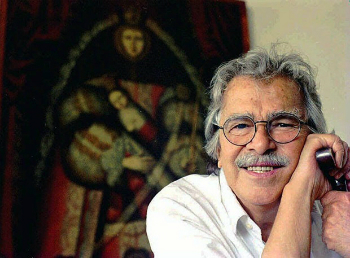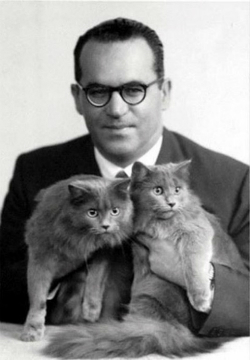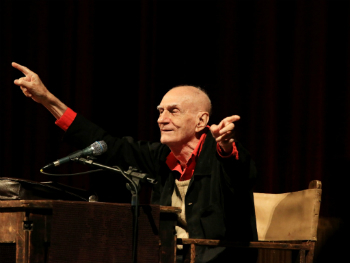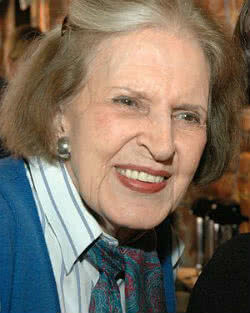Darcy Ribeiro was a Brazilian educator, politician, ethnologist, anthropologist and writer. His studies were essential to leverage a new educational reform in Brazil.
In the area of anthropology, he deepened his analysis of indigenous communities. The main concept spread by him was that of cultural identity.
Biography of Darcy Ribeiro
Darcy Ribeiro was born in Montes Claros, Minas Gerais, on October 26, 1922. His father Reginaldo Ribeiro dos Santos, was a pharmacist; and his mother, Josefina Augusta da Silveira, was a teacher.
He studied elementary and high school in his hometown. He entered the Faculty of Medicine, but abandoned his studies when he decided to work in the field of political science. From there, he went to São Paulo to study anthropology, graduating in 1946.
With her knowledge in this area, Darcy decided to study the indigenous communities of Brazil. Between 1949 and 1951 he worked in the Indian Protection Service.
He was director and collaborator of the foundation of the Museu do Índio and participated in the creation of the Xingu indigenous park.
Darcy Ribeiro and Education
Darcy, who worked at the Ministry of Education and Culture, was a great articulator of education in Brazil.
He had a very important professional relationship with the educator. Anísio da Teixeira. Together, they founded the University of Brasília (UNB) and were rectors.
With this intellectual, Darcy was an advocate of democratization of public education and quality for everyone.

The anthropologist was the founder of the State University of North Fluminense (UENF) which today bears his name: State University of North Fluminense Darcy Ribeiro. Its headquarters are in Campos dos Goytacazes, in the state of Rio de Janeiro.
Darcy was a professor of anthropology at the Fundação Getúlio Vargas School of Public Administration. He also taught Brazilian Ethnography and Tupi Language classes at the Faculdade Nacional de Filosofia.
With the arrival of the Dictatorship in Brazil, Darcy went into exile in Uruguay, where he remained for a few years. Accompanied by his wife Berta Gleizer Ribeiro (1924-1997), also an anthropologist, they lived in Venezuela, Chile and Peru.
Back in Brazil, Darcy participated in the creation of Integrated Public Education Centers (CIEP). His proposal was to combine formal studies with cultural activities. Still in the area of education, he participated in the drafting of the Law of Guidelines and Bases (LDB).
Read more about education in Brazil.
Culture and Politics
darcy went creator of the Latin America Memorial, founded in 1989. It is a cultural center located in São Paulo.
In the area of politics, he was deputy governor of Rio de Janeiro working alongside Leonel Brizola. In addition, he was a senator of Rio de Janeiro, a position he held until his death.
As head of the Civil House, he was involved in drawing up basic reforms.
Brazilian Academy of Letters
On October 8, 1992 Darcy was elected to occupy the Chair No. 11 of the Brazilian Academy of Letters (ABL). His inauguration took place on April 15, 1993.
“The clearest lesson I take from my struggling life is that, apparently generous and selfless, I actually was and am selfish. From them came the praises and gratitude that warmed my heart the most. From them, mainly, comes the decorum and dignity that my life has. I am the true beneficiary of my benevolence. Life has given me a lot. Thanks, have been worth the penalties.
Today, here I am happy, in front of my peers, in this high academic landing. I never assumed I would. Fearing otherwise, I belittled him, envious. It came to me, however, at the right time of this old age that I enter, still not stumbling, to console myself with her. Together, we will live here, like the aspired immortality, our concluding actions. Living cordially in what we are: a faithful sample of Brazilian intelligence, as varied as itself. That's all. Thank you so much.” (Inauguration speech)
Death of Darcy Ribeiro
Darcy died at the age of 74 in Brasília, on February 17, 1997, a victim of cancer. In his memoir he wrote:
“I end this life of mine already exhausted from living, but wanting more life, more love, more knowledge, more mischief.”
Works by Darcy Ribeiro
Darcy has produced several works and essays in the areas of anthropology, sociology and education. Also, he wrote some novels.
- Indigenous Cultures and Languages of Brazil (1957)
- The Brazilian indigenous policy (1962)
- The necessary University (1969)
- The Indians and Civilization (1970)
- The Brazilians – Theory of Brazil (1972)
- Historical-cultural configurations of the American peoples (1975)
- The Latin American Dilemma (1978)
- Our School is a Calamity (1984)
- Latin America: the great homeland (1986)
- The Brazilian people (1995)
Affairs
- Maira (1976)
- The Mule (1981)
- Wild Utopia (1982)
- Migo (1988)
The Brazilian People: work by Darcy Ribeiro
Based on his ethnographic experiences, Darcy was a great defender of indigenous communities and a disseminator of the concept of cultural identity.
By publishing in 1995 his masterpiece "The Brazilian People - the formation and meaning of Brazil", Darcy addresses the ethnic formation of the Brazilian people.
He categorized these formative matrices into 5 types:
- Brazil in the backlands;
- Creole Brazil;
- Caboclo Brazil;
- Brazil country country;
- Southern Brazil.
“All of us Brazilians are meat of the flesh of those blacks and Indians who were tortured. All of us Brazilians are, equally, the possessed hand that tortured them. The tenderest sweetness and the most atrocious cruelty have come together here to make us the felt and suffering people that we are and the insensitive and brutal people that we are too. Descendants of slaves and slave masters will always be servants of the malignity distilled and installed in us, both through the feeling of pain intentionally produced to hurt more, as for the exercise of brutality on men, on women, on children converted into pasture of our fury.
The most terrible of our legacies is that of always carrying with us the torturer's scar imprinted on the soul and ready to explode into racist and classist brutality.”
Learn more about anthropology:
- What is Anthropology?
- History of Anthropology
- The Anthropological Schools
Darcy Ribeiro Foundation
The Darcy Ribeiro Foundation (FUNDAR) is located in Santa Teresa, Rio de Janeiro. It is a cultural, research and scientific development entity.
In partnership with FUNDAR and the Ministry of Culture the Darcy Ribeiro Memorial (Beijódromo) was built on the campus of the University of Brasília in 2010. That was Darcy's own wish.

Darcy Ribeiro Memorial
The site is made up of research rooms, an amphitheater, an exhibition gallery and a café. The library brings together around 30,000 works from the personal collection of the anthropologist and his first wife: Berta Gleizer Ribeiro. In addition to the works they do, we also find photographs, videos, manuscripts, correspondence, etc.
Quotes by Darcy Ribeiro
- “Courage! Better to make mistakes, breaking up, than saving yourself for nothing.”
- “There are only two options in this life: resign yourself or become indignant. And I will never resign.”
- “Brazil, the last country to end slavery, has an intrinsic perversity in its heritage, which makes our ruling class sick with inequality, with neglect.”
- “If our governors do not build schools, in 20 years there will be no money to build prisons.”
See too:
- LDB (updated in 2019)
- School Inclusion: Concept and Challenges



